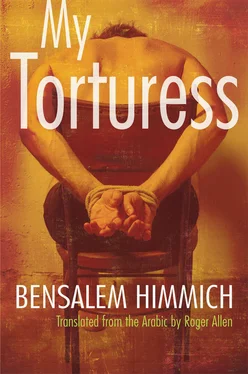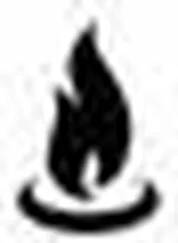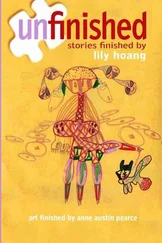My jaw dropped in amazement when I heard his request.
“Yes, I’m talking about your violence! Quite apart from the charge that you killed your mother’s husband — something we’ll be looking into shortly, there’s the matter of the assault on a man whom you subjected to a severe beating, leaving him injured. You claimed that he had insulted your father by cursing him and spitting in his face. But your reaction clearly went way beyond the bounds of revenge and retaliation; not only that, but you also contravened God’s own words in the Qur’an: “ If someone assaults you, reciprocate against him to the same degree ” [Surat al-Baqara 2, The Cow, v. 194], and His command: “ A soul for a soul, an eye for an eye, a nose for a nose, an ear for an ear, and a tooth for a tooth ” [Surat al-Ma’ida 5, The Table, v. 45]. In your case then, you should have been applying the just dictates of Shari‘a law: a curse with a curse, one spitting with another — albeit with a bit more phlegm. But giving your adversary a nosebleed and kicking him in the face, which required that he go to the hospital, that’s wrong. No, and again no!”
Here was this judge pronouncing God’s own words in a tone of voice even more repulsive than that of a donkey — good grief, God protect us all!
“But Judge,” I said, trying to lessen the burden of guilt and put things in perspective, “all that happened a long time ago when I was an impetuous youth! In any case, it’s all been smoothed over.”
“Youth and impetuosity, you tell me! Whatever the case may be, it’s a page in your life that clearly shows a violent streak in your nature, a distinctly unsavory page that can’t be erased with the passage of time, even though you may claim that it does. Traces of violence, just like fire under straw, are liable to burst into flame at any moment. And, if there’s one thing they make clear, it’s that you weren’t praying at that time. Is that right?”
I maintained a stony silence.
“Fanaticism and violence are both repulsive,” he went on. “As it says in our Holy Book: “ Prayer forbids abomination and dishonor ” [Surat al-‘Ankabut 29, The Spider, v. 45], and in our true religion. . But no matter. While you are here and under guard, do you see yourself performing the five daily prayers?”
“That’s between me and my Creator,” I replied.
“No,” he interrupted, “it’s something that is significant to the investigation and interests me specifically. Otherwise how can I befriend you and trust you when I call on you to take the oath? I assume that you’ve either stopped praying as a subterfuge or to dispel certain misgivings you may have; either that, or you’re being extra-cautious and praying in secret, just like someone praying the fear prayer. Which of the two possibilities is correct?”
“In the past I’ve prayed intermittently,” I replied. “But now, while I’m your guest here, I’ve come back to it, ailing, scared, and sick. I can only perform virtual ablutions, turning towards Mecca in mind, not in actuality, reducing the number of prostrations and occasionally lying on my right side or else simply making gestures.”
I noticed him shudder and his neck muscles tighten.
“In the past,” he told me, “some prisoners managed to get hold of some pieces of stone to rub themselves clean, but then they started using them as weapons. I had to take them away and stop them using them in order to avoid chaos and preserve some semblance of order. As an exceptional gesture of sympathy I’ll do my best to get you some smooth materials to use to cleanse yourself. My only request is that you do not replicate the behavior of a former prisoner here whose file I had to deal with (I think he’s dead now). He confessed to me that he had spent his entire life right up to the time of his imprisonment only performing the prayer of fear, keeping the whole thing short and truncated and still wearing his shoes, with his finger poised over a trigger, whether real or illusory. He explained to me that the reason was that he was perpetually afraid of people and even of his own soul which was the advocate of evil. . But now let’s get back to more important matters.”
The judge now paused for a while, blowing pipe smoke either into the air or in my face. He addressed me once again in a gentle tone of voice.
“As I look at you from close up,” he continued, looking straight at me, “I can see strands of good in a fierce battle with the vicious claws of evil; God the Merciful’s armies are fighting the jinn of Satan himself. So choose which side you’re on, and God grant you victory. Place your bets on the horses and see who will turn out the winner! Up till now you’ve been following a policy involving wise silence and tacit wisdom. That’s been a good idea, in that in what follows your words will emerge decorated with pearls of truth and the clarity of accurate testimony. From the state of your cleanliness that I can smell and your general condition as I observe it, I can tell that your situation is not satisfactory. I’m going to issue instructions that you’re to be given a lengthy shower with genuine local soap and to be fed properly so that your body and soul will be suitably refreshed. Once you’ve recovered your proper state of health and are back on your feet, you’ll be spending an evening with some colored pencils. On some smooth paper you’re going to compose a brief account of the murder of your mother’s husband. There’ll be a second report as well, this one in much more detail — the central core of the whole business — about yourself, your cousin, and the group of friends you both had; this one will have to be crystal clear, fresh water for the thirsty soul. By my very life, this is obviously the right thing to do at this point; it’ll save valuable time and move things along. By relieving distress, we might say, we’ll help the nation progress. Let me also underline the advice I’m giving you: make sure that everything is expressed in the very clearest syntactic style, using only the most immaculate language in order to serve as a lamp that will illuminate the course of the thread and the excellence of what is said. All this will be a confirmation of the what the great polymath, Abu ‘Uthman Bahr al-Jahiz,* said many centuries ago, he being, as you are well aware, one of the great champions of Arabic rhetoric, of ornate discourse, and the heritage of Arabic learning. Remind me again of what it was that he said — and may God grant you a good testimonial when your final moments come!
This nonstop swirl of verbiage and utter nonsense made my head spin.
“If I remember correctly,” I replied, “Al-Jahiz said something like this: ‘All meaning is potentially out there in the public domain. What has an impact is the way in which phrases are balanced, the right words are selected, the phonetics are appropriate, and the water flows freely. The whole thing has to be properly presented and well crafted.’”
“That’s right,” he said. “You’ve reminded me. Our renowned scholar says in his Book of Misers . .”
“No, actually it’s in his Book on Clarity and Clarification and The Book of Animals . When he uses the phrase ‘the water flows freely,’ he means the water of truth.”
“I’ll check the source. If you’re right, what would you like me to give you? Swiss or Dutch chocolate? Do you like such things? Who doesn’t like chocolate?!”
The judge now leapt to his feet, held me gently by the shoulder and, with a superficial grin on his face, took me over to the door.
“Takes these pens and paper with you,” he said, his eyes blinking behind his spectacles. “They’re a gift from me. Get moving on your project, my fine and conscientious littérateur! I have this sense that it won’t be long before we’ll be seeing eye to eye on matters of mind and vision; through intuition and sheer good taste we’ll coalesce. As for now, I’m entrusting you to God’s care, so you can go back to your refuge safe and sound. Farewell!”
Читать дальше












